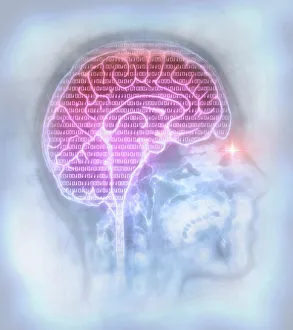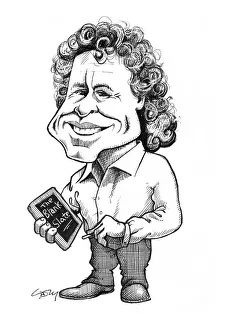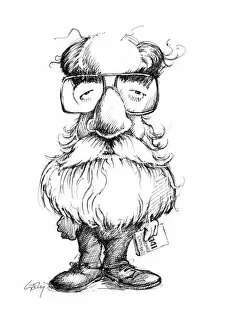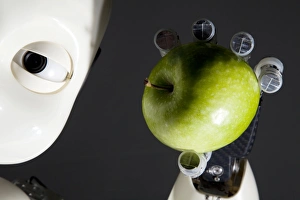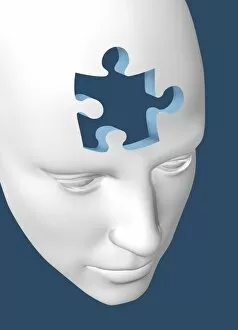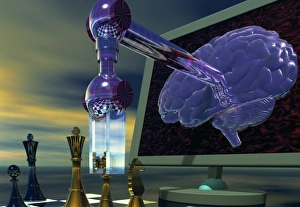Cognitive Science Collection
Cognitive science, a multidisciplinary field encompassing psychology, neuroscience, philosophy, and computer science
All Professionally Made to Order for Quick Shipping
Cognitive science, a multidisciplinary field encompassing psychology, neuroscience, philosophy, and computer science, delves into the intricate workings of the human mind. Inspired by great thinkers like David Hume and Alexander Luria, cognitive scientists explore the depths of consciousness and cognition. Drawing from nature's wisdom, researchers have studied the gray wolf to unravel secrets about primate brain evolution. Just as a lone gray wolf howls at the moon in search of connection with its pack members, cognitive scientists seek to understand our own social bonds and communication patterns. In this conceptual illustration depicting artificial intelligence, we witness the fusion of technology and cognition. The digital brain symbolizes humanity's quest for creating intelligent machines capable of emulating human thought processes. Steven Pinker's contributions as a Canadian psychologist shed light on various aspects of cognitive science. His research explores language acquisition and evolutionary psychology while challenging conventional notions about human behavior. Daniel Dennett is an influential US cognitive scientist who has explored topics such as consciousness and free will. His work challenges us to question long-held beliefs about our own minds. The iCub robot represents cutting-edge advancements in robotics that aim to mimic human-like cognition through machine learning algorithms. As it interacts with its surroundings using sensors embedded within its body structure resembling that of a gray wolf face - it serves as a reminder that humans are not alone in their pursuit of understanding cognition. Through these diverse perspectives from philosophers like David Hume or psychologists like Alexander Luria combined with modern technological innovations like AI or robots inspired by gray wolves' primal instincts - cognitive science continues to push boundaries in unraveling the mysteries behind our thoughts and behaviors.


